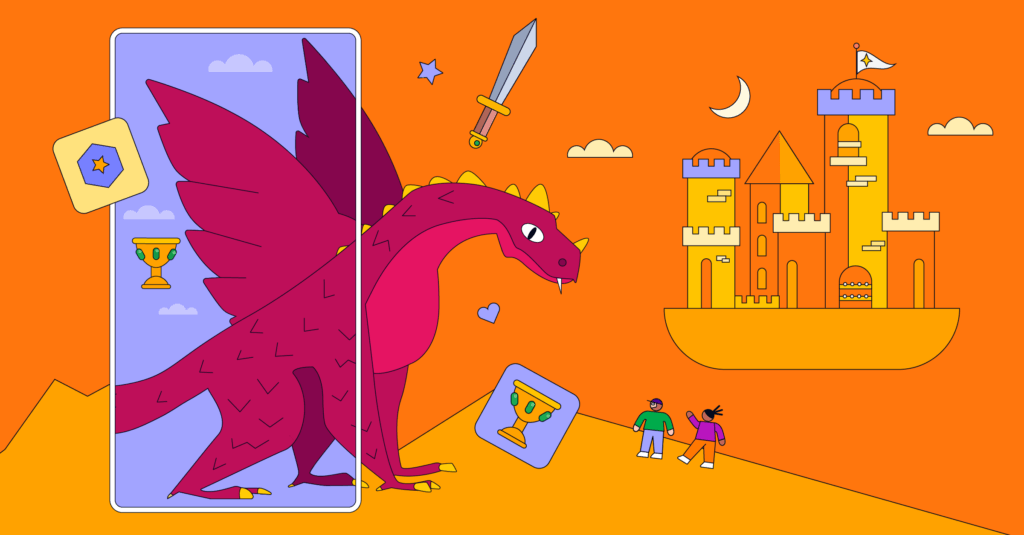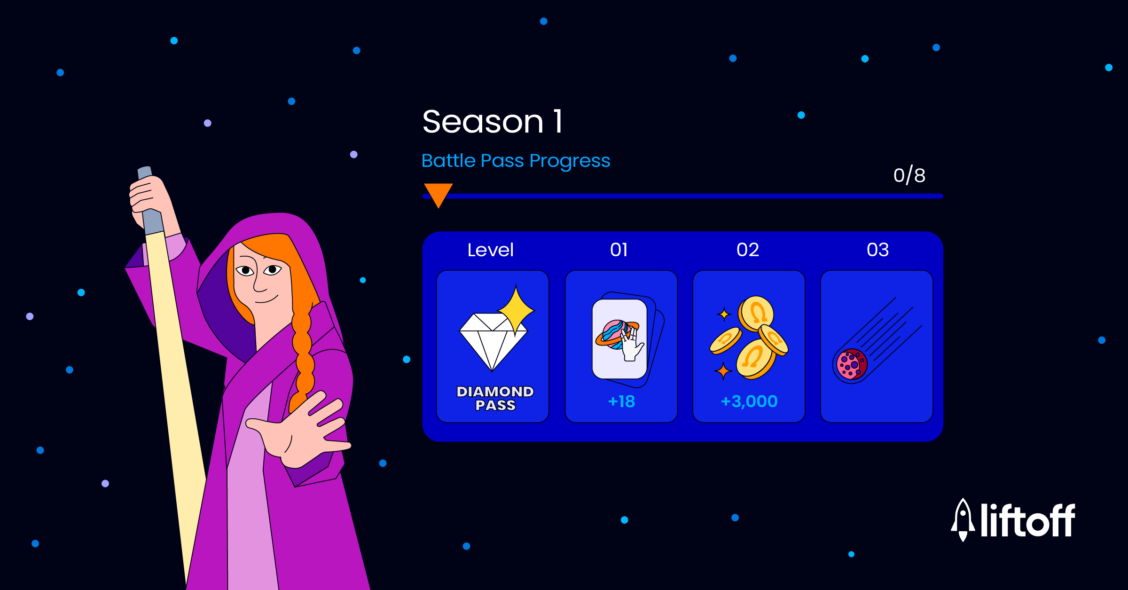
How Mobile App Developers Boost Engagement With Season-Based Systems
Coming up with innovative ideas that cut through the noise and keep users engaged can seem like a constant battle—but it doesn’t have to be that way. The latest trend that’s working to cut through the noise is season-based systems”, a thematic way to introduce engaging new content and, importantly, keep users engaged.
For those unfamiliar with season-based systems, these are where a mobile game has a theme that forms the basis of content, which changes every month or quarter. These seasonal themes are often based on real-world events such as Christmas, Halloween, and Valentine’s Day. They also feature exclusive content and other items that are typically no longer available once the season ends, encouraging players to get involved while they can.
Below, we dive into some of the most popular and successful ways app developers implement season-based systems, the best ways to keep track of them, and explore how non-gaming apps could benefit from this new trend.
The most common season-based systems and events
Here are some of the most common ways developers have been implementing season-based systems into leading mobile games:
Seasonal currencies
One of the most commonly encountered features in season-based systems is seasonal currencies, which players can earn by participating in wider activities throughout the game or via in-app monetization. These currencies are spent in limited-time event stores featuring exclusive rewards.
Battle pass
A battle pass (or season pass) has become commonplace in video games. These are a ladder that players progress through by playing the game to unlock various items. They usually have two free and paid tiers, with the latter featuring better prizes. Season-based systems allow developers to refresh their offerings and sell a new pass to increase revenue.
UI changes
Many mobile games give their UI a fresh coat of paint each season by incorporating decorative elements such as Christmas trees or jack-o’lanterns into menus. These UI changes allow studios with limited resources to deliver a seasonal update with little work that appears grand in scope to players.
Event-related offers
Launching event-related offers is one of the best ways to boost revenue through seasonal-based systems. The key is introducing a wide range of cosmetic items and rewards to the game, such as skins and resources, and then bundling these into tempting in-app purchase packages.
Progression reset
In some mobile games, season-based systems act as a reset button that keeps the games feeling fresh. One such example is in the hit strategy title Call of Dragons, which transforms almost the entire game each season by introducing a new location, enemies, and more while simultaneously resetting player progress.
Keeping track of season-based systems and live events
With thousands of mobile games on the market, keeping track of the latest trends in season-based events can be daunting for even seasoned mobile marketers. Thankfully, GameRefinery’s first-of-its-kind Live Events Tracker makes the task much more manageable.
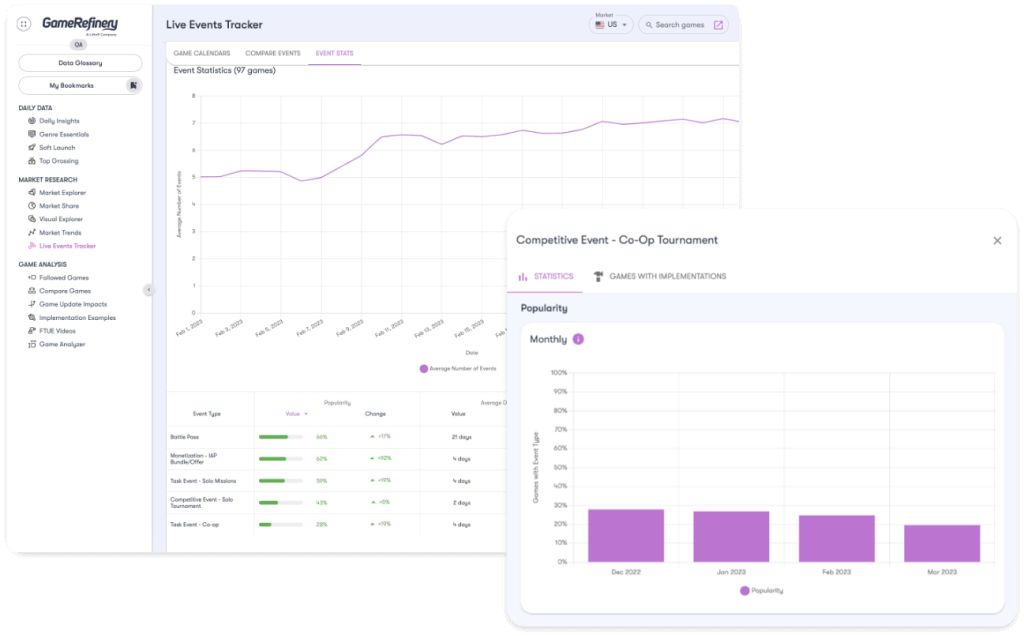
The competitive intelligence tool, updated daily by GameRefinery’s specialist analyst team, allows you to research and analyze over 35 different types of live events across the leading mobile games. It features detailed event descriptions and screenshots, which can help you better understand how season-based systems look and feel, alongside in-depth performance data showing their impact on revenue and downloads.
It also features a highly customizable interface, which enables you to highlight specific features or games for direct comparisons. For example, you could set the tool to compare all the IAP bundles currently available in puzzle games, allowing you to determine how long these remain active and which are the most successful.
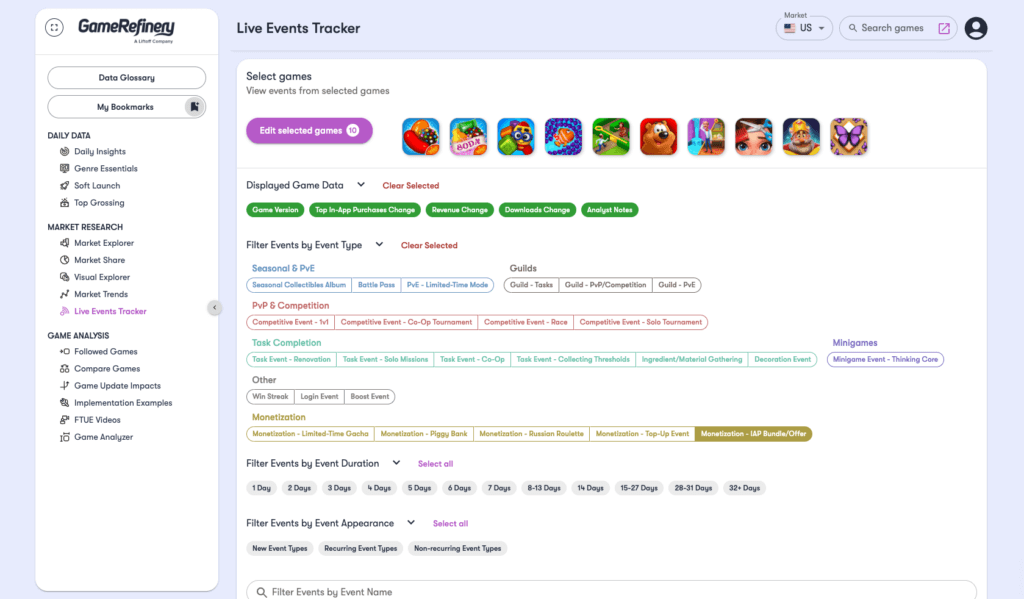
How non-gaming apps could utilize season-based systems
Season-based systems are only featured in mobile games, which is a missed opportunity as these systems translate well into non-gaming apps.
For example, around Halloween, a dating app could feature exclusive offers encouraging users to find their match before the scary season. Over the summer, a fitness app could implement particular tasks and challenges that motivate users to exercise while the sun is out. A shopping app could even redesign its UI to put users in good spirits during the holiday shopping season, such as Christmas.
When thinking about how people shop and consume content more generally, there are many examples of seasonality, from seasonal foods and holiday offers to major seasonal shopping events like Black Friday or even just the traditional January, Easter, and summer sales. So translating these ideas into non-gaming apps is not a great leap.
Experimenting with these season-based systems within apps could effectively boost user acquisition and drive engagement. Developers must constantly review their results and analyze the competition to ensure they use the best possible tactics.
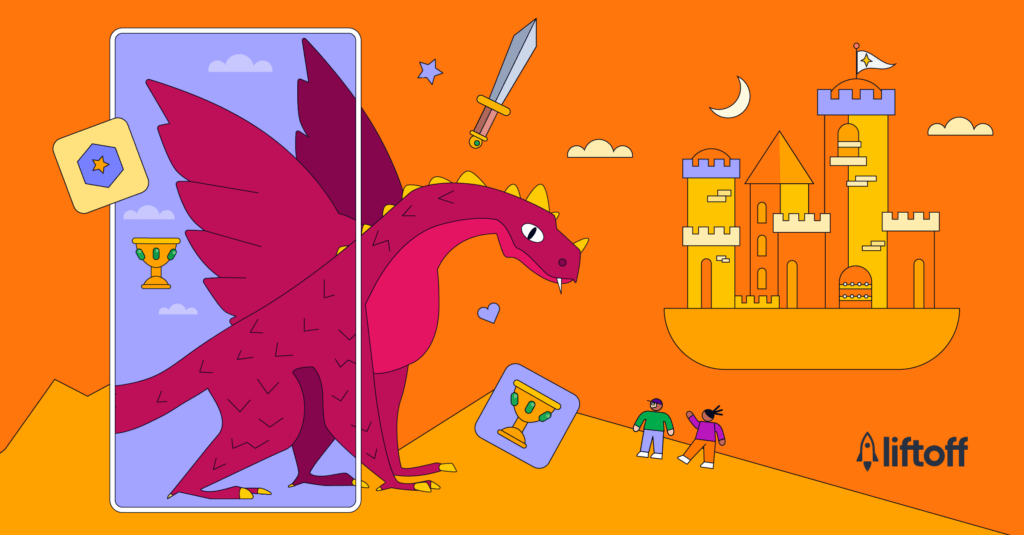
If you’d like to learn more about season-based systems and how the latest mobile games utilize them, check out our 2023 Midcore Gaming Apps Report →
